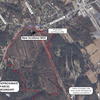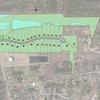Dogs must be leashed on public property
NEW SCOTLAND — At its January meeting, the town board approved an update to its 2006 Dog Control Law, making it unlawful — with a few exceptions — for a dog to be unleashed on public property.
At next month’s meeting, the board will discuss a resolution that would allow dogs to be walked off-leash in the Stephen P. Wallace Park on Swift Road, between 6 a.m. and 8 a.m.
“It’s been something that has kind of popped up every couple of months,” Supervisor Douglas LaGrange told The Enterprise in November 2018 of the problems New Scotland has had with dogs; someone would contact the town or come to a board meeting to say that they had encountered a situation where another dog had not been leashed and an incident occured.
The 2006 law said that a dog had to be restrained by an adequate leash, unless it was accompanied by and under the full control of its owner or a responsible person. The updated law takes away the subjectiveness of “under the full control of its owner,” LaGrange told The Enterprise last week.
The updated law also makes a distinction between public and private land when it comes to leashing; the 2006 law did not.
Under the new law, it’s unlawful for a dog to be off-leash on public property unless it is part of an official performance; a government or police dog; is in the company of a licensed hunter on private property; or the dog’s owner owns land on both sides of a public street, and the property is located in either the Residential Agricultural or Residential Forestry zoning district.
A dog on private property, the new law says, must be leashed unless the property is owned by the dog’s owner, or the private-property owner has granted permission for the dog to be off-leash.
The penalty for violating the new law is $50, and $100 for each subsequent violation.
Other business
In other business, the town board:
— Passed a law that gives the planning and zoning boards as well as town officials and departments the authority to retain consultants and experts.
“Without independent consultants, the planning and zoning boards are forced to rely on the opinions expressed, and evaluations prepared, by consultants retained by an applicant. Independent analysis by qualified consultants is sometimes necessary: (1) to ensure the reliability of reports prepared by an applicant’s consultant; and (2) to develop alternative approaches and solutions to planning and zoning proposals,” the new law states;
— Authorized the supervisor to sign an agreement with Stantec Engineering, designating the company as the town’s engineer. This year, New Scotland budgeted $15,000 for contractual engineering services; and
— Approved an agreement with the Capital Region Solid Waste Management Partnership Planning Unit to share the cost of a recycling coordinator. Under the agreement among 13 municipalities, with cost based on population, New Scotland’s pays 2.7 percent of the recycling coordinator’s salary. LaGrange said it is a standard agreement that is signed every three years by the municipalities in order to get a better rate for solid-waste disposal services.


